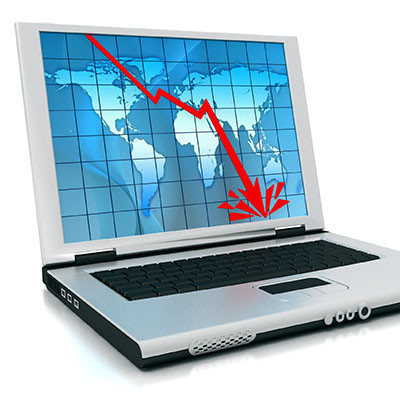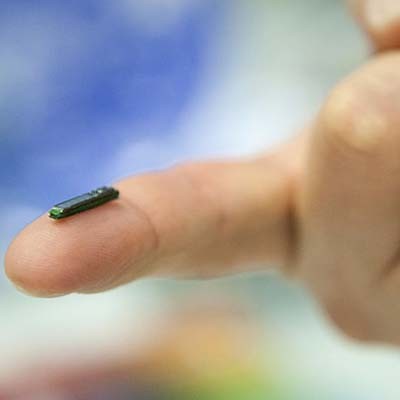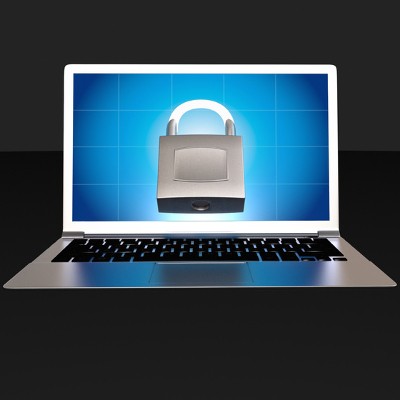Building a company’s computing infrastructure is a costly and time-consuming process. Sure, you can purchase new servers; or workstations in bulk, but overall it takes some time to get everything set up and running just how you need it to. PC manufacturers are shipping fewer computers than ever before and that may have an impact on your business’ ability to get the technology it needs when it needs it. Let’s take a look.
PCSOFT Blog
Huawei is one of the biggest technology companies in the world, employing over 200,000 people and accruing more than $100 billion in annual revenue without being a major player in the hungry U.S. market. As impressive as these numbers are, the Chinese company is staring at a very troubling situation in the face.
Over time, we’ve seen technology be developed into smaller and smaller sizes. One of the most notable examples of this is the computer. Computers used to be so large that they would take up the whole room, but nowadays, thanks to the developments in technology manufacturing, they take up a fraction of the space that they did not so long ago. What’s even more amazing is that this development has simultaneously increased performance while making technology take up a considerably smaller amount of space.
Chances are that you’ve been forced to endure slow computers in the past. They test the boundaries of your patience, and they make it extraordinarily difficult to get any substantial work done. Slow computers can have devastating effects on your budget. Can your business afford to use technology that doesn’t work properly?
Oxford Economics and Nimble Storage claim that the most productivity is lost due to the “App-Data Gap,” which they define as “the delay that occurs when someone interacts with a business application and the application’s response time.” In other words, how much time it takes an application to load. The two companies surveyed 3,000 users from companies all over the world on how slow computers affected their workflow, and the results probably won’t surprise you at all.
These users were asked if their technology was holding them back from reaching their maximum potential, and an astounding two-thirds agreed that subpar technology was a major factor for holding them back in the workplace. In the United States alone, the figures reached as high as 76 percent.
It was also found that respondents lose, on average, 48 minutes per day from dealing with slow technology. About 10 percent of the workday is lost, which might not seem significant at first, but it adds up over time. ITProPortal suggests that companies in the United States lose $7.5 billion annually thanks to lost worker productivity due to slow technology. While you might not be able to help them stop wasting time out of habit, you certainly can provide them with technology required to get their work done effectively.
One of the most common reasons why companies deal with slow computers could be rooted in an organization’s IT budget. They just don’t have the time to properly maintain and manage their systems, even when it’s needed to ensure optimal functionality. It’s beneficial to outsource this responsibility to third-party professionals, but you don’t need just any tech support. You need help from someone who’s invested in your business’s success.
PCSOFT knows that your slow technology solutions could be affecting the way that your business functions, and keeping your employees from reaching their maximum potential. However, the pains of slow technology extend beyond lost productivity; it can also frustrate good employees and make it harder for them to feel satisfied with the job they do for your organization.
Additionally, slow computers could mean that there’s something seriously wrong with them. Some online threats could grind your computers to a halt by eating up valuable computing resources, while other technical hiccups could be a sign of incoming hardware failure. You need to respond to these possibilities in force. Otherwise, you risk everything by continuing to run technology that’s not being cared for properly.
Whether or not your in-house team has time for technology maintenance and troubleshooting, we can help. To learn more, reach out to us at 02 98730080.
Of the many types of malware in the online environment, few are as dangerous as the notorious ransomware. As a threat that’s capable of instantaneously locking down your files and preventing you from accessing them, hackers will add insult to injury by demanding a ransom for the safe return of your files. How can your business prevent this growing threat from setting its sights on your assets?
Ransomware has the power to completely destroy your business’s data by removing access to important files. It encrypts the files stored locally on your PC, with more powerful variants being capable of spreading throughout your network infrastructure. The only way to get the files unlocked is by paying the hacker to provide a decryption key. In 2015 alone, ransomware cost users over $325 million, which makes it an exceptionally lucrative business for hackers. Ransomware usually finds its way into systems through infected email attachments. Ransomware takes advantage of inexperienced or unaware users who fall for the trick and download the infected file.
Many kinds of ransomware will use fear to their advantage. They count on users reacting rashly to their hacking schemes. For example, one type of ransomware may pose as the Federal Bureau of Investigation, which may claim that the user has illegally downloaded copyrighted material or is in the possession of incriminating pornography. Others may masquerade as members of local law enforcement, who demand that a fine must be paid in order to ensure the safe return of their files. Some ransomware, on the other hand, will make absolutely no effort to hide their true intentions, and will instead openly demand that the ransom be paid, not caring whether or not people know that a hacker is responsible. Either way, they want you to pay up, and if you don’t, they’ll threaten to lock down your files for good.
The most common kind of ransomware is known as CryptoLocker. It’s your typical ransomware: it locks down files and demands a ransom for the decryption key. This ransom often must be paid in Bitcoin through the anonymous web browser, Tor, which makes it difficult for law enforcement to locate the criminal who set the scheme in motion. A more dangerous version of CryptoLocker, CryptoWall, is capable of locking down data on workstations and can spread across your entire network infrastructure, encrypting data and making it near impossible to recover. This means that it only takes one infected system to completely lock down your network.
In instances like these, you want to have your files backed up somewhere safe where the ransomware can’t encrypt them. If your files aren’t backed up, you might feel like you have no choice but to pay the hackers for the decryption key. If you’ve been infected by ransomware, and you’re considering just forking over the ransom, it’s important that you should never pay the ransom. What would happen if you paid the ransom, and the decryption key doesn’t work, or they refuse to hand it over altogether? If you ever do get infected with ransomware, you should contact trusted professionals who are skilled with working with technology and online threats.
However, it does need to be mentioned that the likelihood that your data is recoverable, without having it backed up, is slim at best. Many types of ransomware use powerful encryption protocol that’s difficult to crack, and it’s not a guarantee that even the most tech-savvy IT technician can unlock your data. Instead, it’s important that you take full advantage of powerful security solutions to avoid getting hit with ransomware, threats, and user errors in the first place. Spam-blocking solutions can prevent phishing emails from finding solace in your email inbox, and having a strong firewall and antivirus solution can help you defeat threats that you encounter. Look no further than the IT professionals at PCSOFT to protect you from any online threat.






